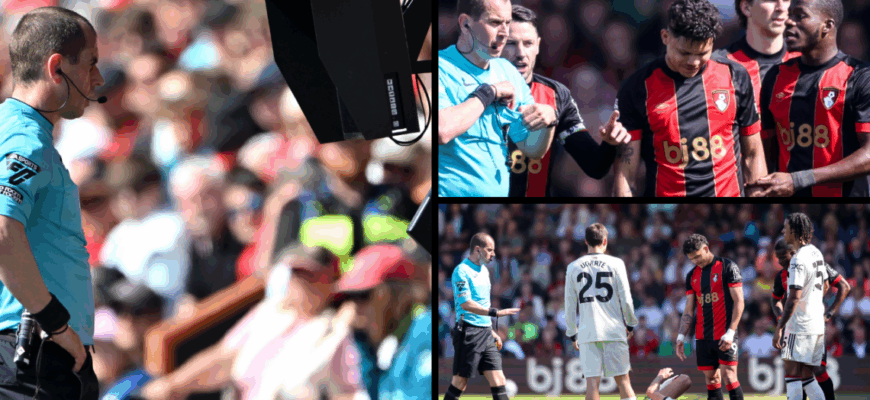The world of youth sports often serves as a microcosm of society, reflecting its values, its passions, and, occasionally, its more chaotic tendencies. A recent incident in Collegno, Italy, involving a 13-year-old football goalkeeper, initially painted a picture of a young victim subjected to adult aggression. However, a subsequent judicial review has dramatically reshaped this narrative, turning a tale of apparent victimization into a complex lesson in accountability for all parties involved.
From Victim to Instigator: A Surprising Turn of Events
Thomas Sarritzu, the young goalkeeper for Volpiano Pianese, found himself at the center of a media storm after a video circulated showing him being physically assaulted by an adult during an Under-14 tournament match against Carmagnola. The initial outpouring of sympathy was swift, with football luminaries like Italy’s national team captain, Gianluigi Donnarumma, and AS Roma’s Mile Svilar extending invitations and support to the seemingly beleaguered youth.
Yet, as is often the case, the full story proved to be considerably more nuanced. The sports judge of the Piedmontese Provincial Committee, Roberta Lapa, having reviewed the evidence, including the now-critical video footage, delivered a verdict that upended initial perceptions. Thomas Sarritzu was not merely an innocent party; he was an instigator.
The judge’s findings revealed that Sarritzu, at the conclusion of the match, “assumed violent and unsporting conduct, inciting a brawl and striking an opposing player, lying on the ground, with slaps and punches to the side and back.” This revelation recast the subsequent adult intervention, while unequivocally wrong, as a reactionary act to a prior aggressive display by the young goalkeeper himself. Consequently, Sarritzu received a substantial one-year disqualification, barring him from the pitch until September 2026.
A Cascade of Sanctions: No One Walks Away Clean
The Collegno incident, it became clear, was a multi-faceted breakdown of sportsmanship and adult responsibility. The judicial body, emphasizing the profound need to uphold the integrity of youth sports, issued a series of penalties designed to deliver an “exemplary magnitude” of sanction.
Beyond Thomas Sarritzu, Cristian Barbero, a player from the opposing Carmagnola team, also received an equivalent one-year disqualification. His offense: actively participating in the brawl and striking an opponent. This underscores a critical point: regardless of who initiates, engaging in such behavior carries severe consequences.
Perhaps even more telling was the sanction against Angelo Sarritzu, Thomas’s father and a manager for Volpiano Pianese. He was handed a six-month suspension, not for the initial assault on his son (which was committed by the opposing player`s father), but for his own violent conduct. Instead of acting as a calming presence, a role expected of a club manager, he engaged in a physical altercation with the “non-registered person” who had entered the field. It’s a rather grim reminder that parents and club officials are meant to be guardians of fair play, not participants in the fray.
Adding financial weight to the disciplinary action, both the Volpiano Pianese and Carmagnola clubs were fined 150 euros each, with Collegno, the tournament organizer, receiving a 200 euro fine. A small sum, perhaps, but a clear signal that the responsibility for maintaining a safe and respectful sporting environment extends institutionally.
The Enduring Lesson of Youth Sports
The initial public perception, fueled by a selective understanding of events, had quickly positioned Thomas Sarritzu as a sole victim, triggering heartfelt messages from professional athletes. One wonders if those invitations to Coverciano, the Italian national football team`s training center, still stand in the wake of this verdict. Indeed, a subsequent report indicated that the invitation was reconsidered. The father who had initially attacked Thomas had expressed remorse through the press, stating his actions stemmed from fear for his own son. But as the full picture developed, the complex web of instigation, reaction, and adult culpability became undeniably clear.
Youth football, and indeed all junior sports, are envisioned as arenas for character development, fostering respect, discipline, and teamwork. When these foundational principles are undermined by escalating violence – whether initiated by young players or exacerbated by adult interference – the very purpose of these activities is jeopardized. This Collegno incident, while unfortunate, serves as a poignant, if somewhat ironic, case study. It reminds us that truth, much like a football match, is often a game of two halves, and accountability, thankfully, has no age limit. It demands an impartial and firm response from all stakeholders, ensuring that the field remains a place for sport, not combat.







